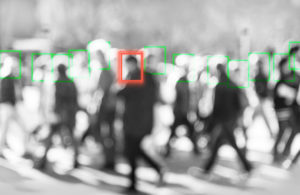
The Supreme Court reviews Congress’s subpoena power, California guarantees mail-in ballots for the general election, and more…
IN THE NEWS
- The U.S. Supreme Court heard oral arguments concerning the legality of subpoenas issued by the U.S. House of Representatives to President Donald J. Trump’s accounting firm and two of his major business lenders for financial records. President Trump’s lawyers argued that the subpoenas impermissibly intended to interfere with the duties of the President and the upcoming presidential election. Lawyers for the House asserted that Congress has the power to make these inquiries for legislative purposes and emphasized that the President is not immune from inquiry. During the arguments, the justices primarily questioned the lawyers on what standard should be used when weighing the competing interests of protecting both the presidency and Congress’s subpoena power.
- The U.S. Food and Drug Administration granted emergency use authorization to the Quidel Corporation, a pharmaceuticals company based in San Diego, California, to manufacture and market the first antigen test for coronavirus. The test uses nasal swabs to collect samples, detects protein fragments associated with the virus, and returns results within minutes. Ashish Jha, director of the Harvard Global Health Institute, reportedly expressed optimism that the tests would be able “to be scaled up to millions of tests a day.”
- California Governor Gavin Newsom signed an executive order guaranteeing that all registered voters for the November election will receive mail-in ballots. The order does not prohibit in-person voting, but it creates an alternative method to hold elections, in case large public gatherings at polling stations still pose a public health risk at the time of the election. Jessica Millan Patterson, chair of the California Republican Party, reportedly excoriated Newsom’s decision, alleging that a statewide mail-in ballot system is “not a task that these Democrats can adequately manage or safely execute.”
- A week after the U.S. Supreme Court denied a request to override Pennsylvania Governor Tom Wolf’s order to close non-life-sustaining businesses, Wolf threatened consequences for counties threatening to defy his shutdown orders. Governor Wolf explained possible penalties—including loss of federal stimulus funding, business liability insurance, and liquor licenses—for reopening before meeting scientific benchmarks. President Donald J. Trump suggested that political motivations were behind the shutdown order. Later in the week, President Trump praised the Wisconsin Supreme Court’s decision striking down the state Department of Health Services’s extended stay-at-home order.
- A new report suggests that there have been significant consequences two weeks after President Trump’s executive order invoking the Defense Production Act to ensure meat and poultry processors continue operations according to federal guidelines. Counties with major beef or pork slaughterhouses reportedly experienced a 40% rise in confirmed COVID-19 cases in the week following the reopening, double the national average increase in cases. More isolated communities apparently showed an even greater surge in cases, indicating a risk of creating new hot spots if the plants remain open. The order arose as a solution to predicted meat shortages, and industry leaders reportedly “attribute the high infection rates to aggressive testing.”
- The U.S. District Court for the Eastern District of California temporarily blocked a Trump Administration directive to divert water from northern California to southern California for agricultural purposes. When President Donald J. Trump announced the original plan, he reportedly stated that the changes to “outdated scientific research” will help eliminate the obstacles to implementing a water diversion plan that could address water shortages in the region. Critics of the order, however, asserted that the plan will cause catastrophic environmental effects if carried out. California Attorney General Xavier Becerra called the plan a “reckless attempt to expand water export operations at the expense of California’s wildlife and habitats.”
- Three conservation groups—the Center for Biological Diversity, Defenders of Wildlife, and the Animal Legal Defense Fund—filed suit in a federal trial court alleging that the Trump Administration usurped Congress’s appropriation powers by redirecting $7.2 billion of the U.S. Department of Defense’s funds to use for the construction of a wall on the U.S.-Mexico border. The groups also challenged the U.S. Department of Homeland Security’s approval of waivers of environmental regulations in Arizona for border wall construction as an unconstitutional use of legislative power by the executive branch. Brian Segee, a senior attorney at the Center for Biological Diversity, reportedly stated that President Donald J. Trump was turning “the borderlands into sacrifice zones” that would devastate the survival chances of jaguars, Mexican gray wolves, and ocelots that live in the region.
- The Chinese government ordered officials in the city of Wuhan, the initial epicenter of the COVID-19 outbreak, to test the entire city population of 11 million for the virus. New plans for testing the whole city include prioritizing vulnerable groups and shared buildings. The additional testing requirements arise out of concern over a resurgence of the virus after new cases emerged for the first time since the government lifted its lockdown a month ago. The testing will reportedly take just 10 days.
- The government of Singapore announced that it will be deploying a four-legged canine robot to enforce social distancing requirements in the city’s Bishan-Ang Mo Kio Park. Designed by robotics design company Boston Dynamics, “SPOT” will be manned by a remote operator and will broadcast a recorded message reminding park visitors to adhere to social distancing guidelines. In a press release, the government of Singapore insisted that although the robot is outfitted with cameras, it will not collect personal data from park visitors.
WHAT WE’RE READING THIS WEEK
- In an article for the Arizona Law Review, Elizabeth Bartholet, professor of Law at Harvard Law School, offered an account of why homeschooling has remained largely free from regulation in most jurisdictions. Although state constitutions typically guarantee a right to education, states impose few if any statutory requirements on homeschooling parents, which, according to Bartholet, is directly attributable to persistent legislative advocacy by homeschooling proponents. Bartholet took a harsh view of the practice and argued in favor of a presumptive ban on homeschooling, requiring parents to obtain permission by showing adequate justification.
- In an analysis for Law360, Aebra Coe reported that it is likely that courts will continue to use remote hearings in the upcoming months. Since a high percentage of judges are over 60 years of age, and thus are at high risk for COVID-19, virtual courtroom proceedings may be the only solution to address the growing backlog of cases. Coe discussed how courts all across the country are grappling with this issue, such as in Michigan where the state Supreme Court has approved a pilot program to explore the possibility of remote jury trials. Chief Judge Ricardo Martinez of the U.S. District Court of the Western District of Washington, reportedly stated that “virtual trials might be the only way forward for courts looking to continue the march of justice as the world deals with a massive health crisis.”
- In a report published by the Center for American Progress, senior policy analyst Gregg Gelzinis advocated greater bank capital requirements, especially amid the coronavirus economic crisis. Gelzinis argued that the reduction in bank capital requirements in recent years opposes the long-term goal of strengthening bank stability during periods of economic growth. To increase the resilience of the financial system, Gelzinis recommended that the Federal Reserve require banks to suspend all capital distributions, change the annual stress tests, raise more capital through equity markets, and suspend the stress capital buffer rule.
FLASHBACK FRIDAY
- In an essay for The Regulatory Review, assistant professor Deepa Das Acevedo of the University of Alabama School of Law explained the core tensions in regulating gig economy workers. Das Acevedo explained that the distinction between employee and independent contractor affects eligibility for federal protections. The employee classification is determined by the extent of employer control over worker activity, which is difficult to measure in the gig economy industry. Das Acevedo argued that until labor and employment law expands its classification methods, “courts will continue to produce confusing and contradictory opinions on how to regulate this new area of work.”



